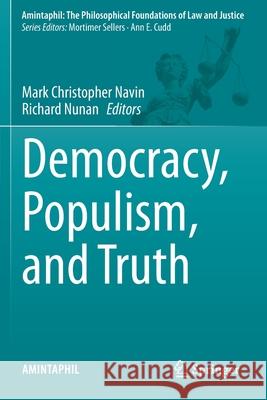Democracy, Populism, and Truth » książka
topmenu
Democracy, Populism, and Truth
ISBN-13: 9783030434267 / Angielski / Miękka / 2021 / 268 str.
Democracy, Populism, and Truth
ISBN-13: 9783030434267 / Angielski / Miękka / 2021 / 268 str.
cena 605,23
(netto: 576,41 VAT: 5%)
Najniższa cena z 30 dni: 578,30
(netto: 576,41 VAT: 5%)
Najniższa cena z 30 dni: 578,30
Termin realizacji zamówienia:
ok. 16-18 dni roboczych.
ok. 16-18 dni roboczych.
Darmowa dostawa!
Kategorie:
Kategorie BISAC:
Wydawca:
Springer
Seria wydawnicza:
Język:
Angielski
ISBN-13:
9783030434267
Rok wydania:
2021
Wydanie:
2020
Numer serii:
000324104
Ilość stron:
268
Waga:
0.39 kg
Wymiary:
23.39 x 15.6 x 1.47
Oprawa:
Miękka
Wolumenów:
01
Dodatkowe informacje:
Wydanie ilustrowane











